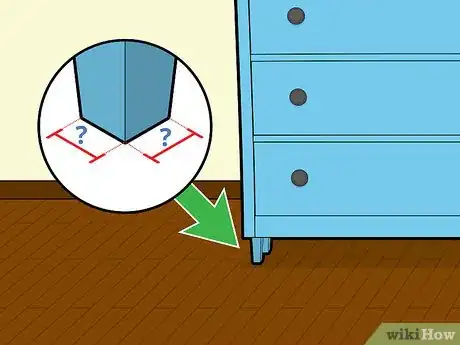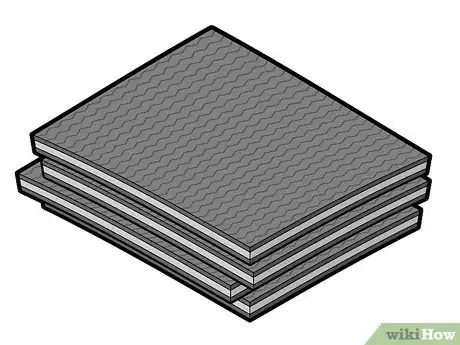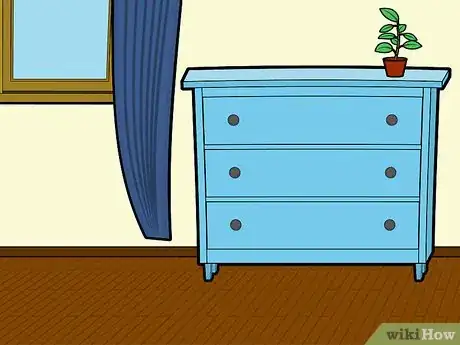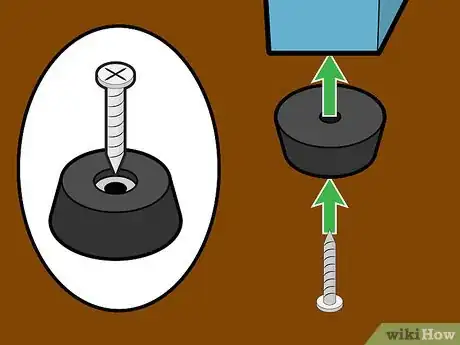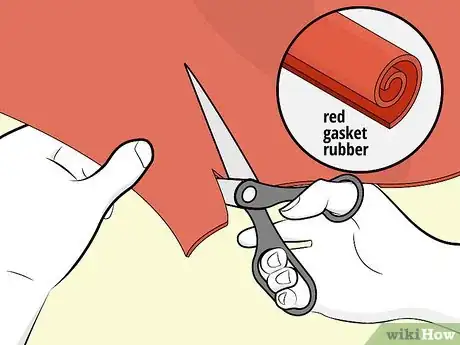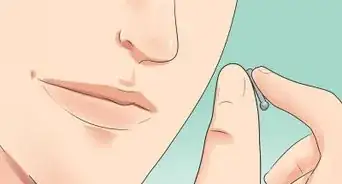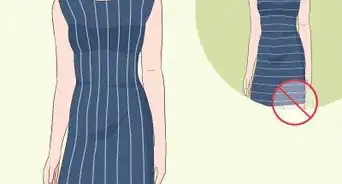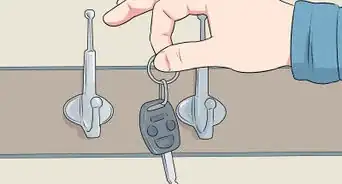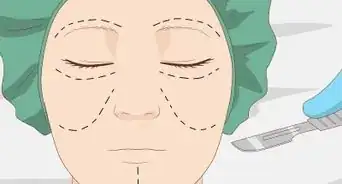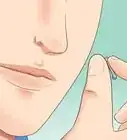This article was co-authored by wikiHow Staff. Our trained team of editors and researchers validate articles for accuracy and comprehensiveness. wikiHow's Content Management Team carefully monitors the work from our editorial staff to ensure that each article is backed by trusted research and meets our high quality standards.
This article has been viewed 13,679 times.
For many people with hardwood or tile floors, sliding furniture can be frustrating. Dropping into a chair or diving onto the couch, you may find your furniture slipping along the floor due to its low friction. In addition to the annoyance, furniture creep can scratch or otherwise damage floors, requiring costly repairs. Fortunately, there are a couple easy, inexpensive methods to prevent this.
Steps
Purchasing and Using Furniture Grip Pads
-
1Measure the dimensions of your furniture's legs. Tilt your furniture onto its back or side. Count the number of legs and measure the dimensions of each leg where it shares contact with the floor. You will use this count and measurements to select the appropriate size and quantity of furniture grip pads.
-
2Purchase furniture grip pads. Choose a set of purpose-made furniture grip pads. You can find these at most large retailers and home improvement stores. They are also readily available from a variety of online stores.
- Furniture grip pads come in a wide variety of sizes, styles, and quantities.
- Choose a set that fits your needs.
-
3Move your furniture to the desired position. For large, heavy pieces of furniture, ask for another person's help to lift and position it.
-
4Place the grip pads beneath your furniture. With the furniture piece in the desired position, lift or tilt it and place the grip pads beneath all points of contact between the furniture and the floor. The increased friction between the mats and the floor will hold the furniture in place.[1]
-
5Screw on the grip pads if they're designed to be screwed directly into the legs of furniture. For this type of grip pad, it may be necessary to drill a small pilot hole. Using a drill bit of a slightly smaller diameter than your screw, drill straight into the bottom of each leg. Typically, the appropriate screws will be sold along with this type of pad.[2]
- Place the grip pad on the bottom of each leg. Using a screwdriver, drive the screw through the center of the grip pad securely into the pilot hole.
- Some pieces of furniture have wheels. Usually, these wheels are equipped with locks to keep them from rolling. Make sure that these locks are engaged. If skidding and slipping persist, it is possible to place wheeled furniture directly onto grip pads as described in step four.
Creating Your Own Grip Pads
-
1Create a grip pad using hot glue. If possible, remove your furniture's legs. Find the part of the leg that shares contact with the floor. Using a hot glue gun, slowly cover this surface with a thin, even coat of hot glue. [3]
- Start at the center of the surface and work your way outward in a spiral. Wait five minutes for the glue to cool and dry. It should be firm to the touch and will feel rubbery.
- Re-attach the legs to the furniture piece. Move the furniture piece to the desired location, using another person’s help if necessary. Carefully set it upright in the desired location.
-
2Create a grip pad using gasket rubber. Purchase a pack of red gasket rubber. Red gasket rubber is commonly used to create seals for plumbing applications, and can be found in most hardware and home improvement stores. It is available in packs of 6x6 inch squares. Purchase an appropriate amount for your project.[4]
- At home, place it beneath the legs of your furniture where they share contact with the floor.
- If desired, you can cut the red gasket rubber to a smaller custom size using scissors or a utility knife before putting them in place.
- Trace with a pen or marker around the bottom of the furniture leg onto the red gasket rubber.
- Cut out the traced shape and place it between the furniture legs and the floor.
-
3Create a grip pad using other readily available household materials. Almost any piece of thin, durable, rubber material will do. A rubber place mat or rubber kitchen drawer liner can be used in a way similar to the red gasket rubber in the step above. Simply cut it to the appropriate size and place it beneath the legs of your furniture.
Warnings
- For heavy pieces of furniture, ask for another person's help to lift and move them.⧼thumbs_response⧽
- Be careful when using a hot glue gun. The dispensing tip and other components of a hot glue gun can get very hot. Unplug the hot glue gun when not in use.⧼thumbs_response⧽
